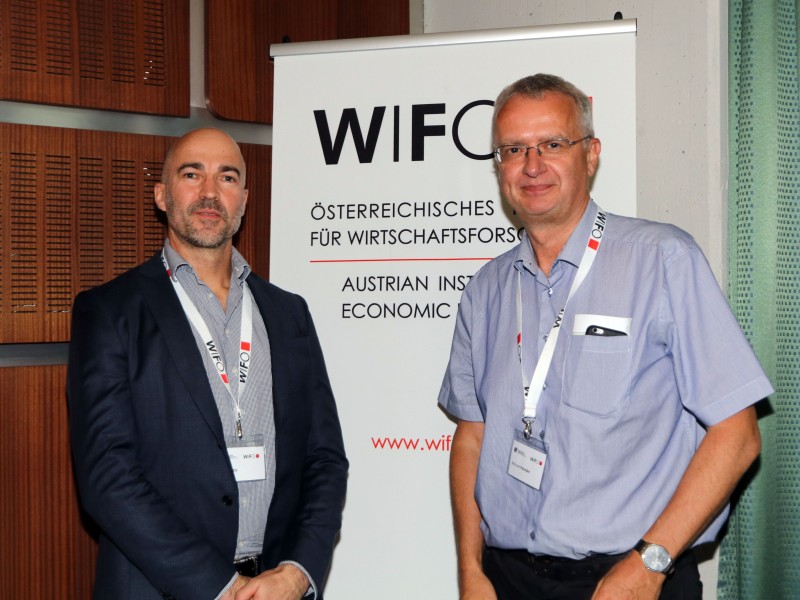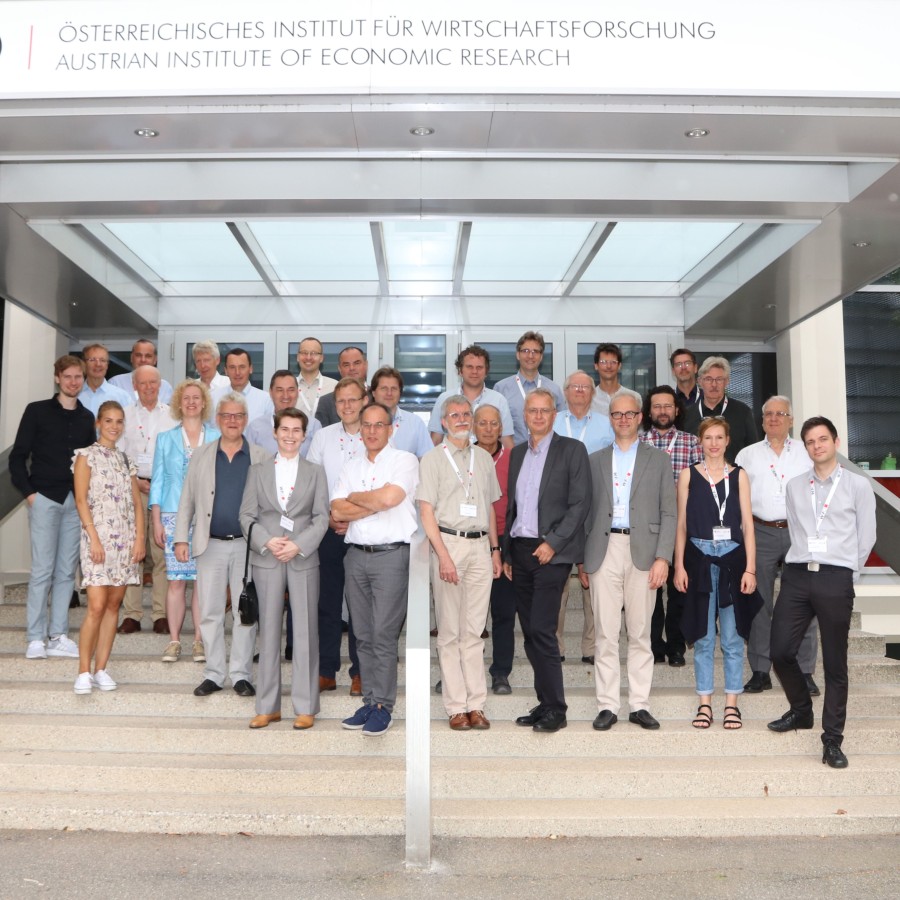In the two keynote lectures, the question of alternative forms of social coordination beyond the usual dichotomy of market versus central government was posed from very different perspectives.
Jason Potts: Institutional Cryptoeconomics
In his lecture "Institutional cryptoeconomics: understanding the blockchain economy" Jason Potts from RMIT University in Melbourne explained the special importance of new blockchain technologies as a basis for institutional change towards decentralized systems of coordination of economic activities (e.g. electronic payment systems, integrated value chains).
Jean-Robert Tyran: Can democracy ever work?
The second guest lecture focused on voting as a form of social coordination in contrast to centralised decision-making. Under the title "Can democracy ever work? A behavioral and experimental economics perspective", Jean-Robert Tyran, Vice-Rector of the University of Vienna, gave an overview of his scientific work on the advantages and problems of collective decision-making through voting.
Various research results showed, for example, that the possibility of participating in voting also increases the willingness
to accept collective decisions and rules. The thesis of a "wisdom of the crowd", which is less susceptible to error than centralised
decision-making, can also be supported by experiments. Both examples ultimately point to economic advantages of democratic
processes.





